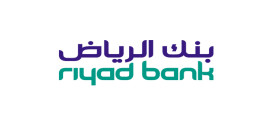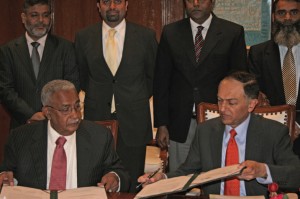

ICIEC is poised for even greater advances. In an exclusive interview with its CEO, Dr Abdel Rahman Eltayeb Taha, our correspondent MUSHTAK PARKER explains what is in store.
Where there is turmoil and transformation, there are opportunities. Export credit and investment insurance opportunities to be precise. In the Middle East and North Africa (MENA) region, one institution stands out to leverage such new opportunities – the Jeddah-based Islamic Corporation for the Insurance of Investment and Export Credit (ICIEC), the stand-alone Export Credit Agency (ECA) of the IDB Group.
But to US-educated Dr Abdel Rahman Eltayeb Taha, the chief executive officer, who has steered ICIEC to becoming one of the most proactive ECAs in the world over the past few years, export credit and investment or political risk insurance (PRI) is more than just hedging against credit and commercial risk and political instability and transformation.
To him, they are also key tools to encourage intra-Islamic and intra-MENA trade consistent with the parent group’s stated target of achieving 20 per cent intra-Islamic trade by 2015. This would be accomplished through greater exports and imports to and from member countries and through facilitating “the flow of foreign direct investment (FDI) to member countries by providing and encouraging the use of Shariah-compatible export credit and investment insurance as credit and country risk mitigation instruments and reinsurance instruments”. After all, these are also the corporation’s core objectives.
Last year, Dr Taha and ICIEC received a major vote of confidence from its board of governors when it increased the corporation’s authorised capital from US$240m to US$640m and, in addition, adopted a resolution allowing financial institutions and business enterprises in its member countries to participate in the capital of the ICIEC through a special class of shares.
This allows ICIEC’s numerous business partners, including Saudi Basic Industries Corporation (SABIC), Zamil Group, Dubai Cable Company, El-Sewedy Electric Company in Egypt, Hikma Pharmaceuticals in Jordan and Saudi Industrial Export Companies, to become shareholders of ICIEC, albeit without voting rights.
In December 2011, Saudi Arabia pursuant to the ICIEC Board decision, was the first to increase its subscribed capital in the corporation from US$13.5m to US$90m, bringing the Kingdom’s total number of shares in ICIEC to 60,000, the second largest after the IDB Waqf Fund’s 100,000 shares. Both these subscriptions dwarf the next ones by far – 5,000 shares held each by Morocco and Pakistan. Not surprisingly, Dr Taha is bullish about the share capital increase of Saudi Arabia in ICIEC and sees it as a major new development that will help significantly to enhance the corporation’s underwriting and reinsurance capacity.
Armed with encouraging 2011 financials, ICIEC is once again expectant of encouraging support from its board of governors, which is scheduled to meet for its 19th meeting in Khartoum on 3-4 April during the 37th annual meeting of the Islamic Development Bank (IDB) Group.
Against a background of global recession, the eurozone sovereign debt crisis and the continuing Arab Spring, what will the board of governors demand of ICIEC at its April meeting in the Sudanese capital, especially in contributing further towards the economic and development transformation of its member countries?
After all, the board of governors of ICIEC’s parent, the IDB Group has insisted that IDB increase its financing by 30 per cent per year for the next three years even though IDB president Dr Ahmed Mohamed Ali lobbied strongly that this target is very ambitious and that the bank needs more resources to be able to deliver confidently.
In a recent interview, Dr Ali agreed that the culture of export credit and political risk insurance is under-developed in IDB member countries. “This is right, although it is changing gradually. It is also a business cultural thing in our societies. Insurance (Takaful) is very important. Gradually there will be an increase in demand for these products, which ICIEC is offering and promoting.”
No one knows better than ICIEC’s Dr Taha of the strong support IDB president Dr Ali gives to the corporation. After all, Dr Ali is the chairman of the board of governors of ICIEC.
Dr Taha, however, is under no illusion of the huge but exciting tasks that lie ahead. In an exclusive interview with Cash & Trade, he expressed his confidence that ICIEC can continue its robust performance in 2012 as it did in the past year.
“The year 1432H, ending on 29 November 2011,” he explained, “saw ICIEC experience a massive leap in its business to US$3.2bn compared to US$1.9bn in 1432H (2010G) – an increase of 59 per cent. This growth in business was as a result of the increased awareness among exporters and banks in our member countries of the importance of credit and political risk insurance as an affective risk mitigant, especially during these turbulent times. It is also a consequence of the responsiveness of ICIEC to the demands of its clients to introduce more flexibility in its product offering.
“The year 2011 also witnessed the corporation maintaining its high credit rating of Aa3 by Moody’s, for the fourth consecutive year, which testifies to the financial strength of the corporation, in a challenging regional and global economic and political environment.”
Indeed, the World Bank’s Multilateral Investment Guarantee Agency (MIGA) in its 2011 World Investment and Political Risk Report confirmed that demand for political risk insurance (PRI) has increased to unprecedented levels, with PRI supply by members of the Berne Union, of which MIGA and ICIEC are the only two multilateral ECA members, remaining robust and pricing reflecting a buyer’s market.
But is this demand driven more by market uptake or by competitive pricing? Like any other product, reminds Dr Taha, the pricing of PRI is determined, by and large, by the demand and supply of PRI in the market. “We know, and as the MIGA report found, that demand for PRI has tremendously increased over the past couple of years. But on the supply side, unlike in previous crises, capacity limits allocated for PRI have not been reduced and, therefore, it remains pretty strong. Nevertheless, supply does not truly match demand, and this naturally leads to prices going up.”
In the case of ICIEC, being a developmental institution, it raised PRI prices quite modestly, just to reflect the uptick in the risk level. Dr Taha also maintains that price increases have not affected all member countries the same way. Even though there is a general increase in the perception of country risk globally, the countries that have recently experienced political upheavals naturally will face more difficulties to attract new investors. In fact, even keeping existing investments in these markets becomes a challenge, too. Thus, price increases have impacted disproportionately on conflict-affected countries.
ICIEC knows that it has a challenge in terms of creating increased market awareness and education in export credit and investment insurance not only of commercial clients but also of government agencies, central banks and ministries of finance and trade. In this respect, the corporation knows that it needs to be more flexible in its range and terms of product offerings.
Credit insurance and especially PRI, Dr Taha acknowledges, is a relatively new and unique concept in ICIEC-member countries. The corporation, he claims, is very actively engaged at multiple levels to enhance awareness of this product.
“We are continuously conducting seminars in our member countries in co-ordination with central banks and leading commercial banks focusing on the importance of our products for the different segments of the financial and economic sector.
“ICIEC organised a seminar for banks at the Institute of Banking in Riyadh under the title The relation between Export Credit Insurance and Finance in relation to Basel II Requirements. The second seminar was jointly organised with Dhaman, the Arab Export Credit Guarantee Agency and held in Lebanon for banks from Lebanon, Syria, and Jordan. The third one was held in Bahrain, under the patronage of the governor of the Central Bank of Bahrain.
“As far as the flexibility of our products is concerned, like any dynamic organisation, we have also evolved our product offering and are continuously increasing the scope of services we offer. For example, we have launched the Contract Frustration Insurance Policy, which has seen a lot of demand.”
Success, though, brings other kinds of challenges. The corporation’s rapidly expanding insurance business, as a result of expansion in its mandate and vigorous demand from member countries as they emerge from the impact of the recent financial crisis, has outstripped its insurance capacity, which is based on its capital and reserves. Therefore, the most appropriate means of providing ICIEC with the required insurance capacity is the provision of additional capital.
Based on the above, the board of governors of ICIEC, resolved at its 18th annual meeting held in Jeddah in June 2011, to increase the authorised capital from Islamic dinars (ID)150m to (ID)400m.
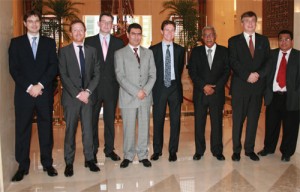
“Being aware of the crucial usefulness of ICIEC services to their respective economies, member countries started already notifying their positive answer to our call. Till today, seven member countries, led by Saudi Arabia, have notified their agreement to subscribe to the capital increase. All of them have used their pre-emptive rights to double their previous subscription, and three have advised their decision to subscribe in the optional increase. Other countries are expected to make their decisions to subscribe during the next few months,” explained Dr Taha.
Contrary to popular misconception, Saudi Arabia is the largest beneficiary of the services of ICIEC. Dr Taha confirms that “there are 176 ICIEC policyholders from the private sector in Saudi Arabia. In fact, most of our policyholders are private sector companies. Due to its multilateral nature, ICIEC has no relation with regulators. Therefore, we are exempt from national regulation. However, ICIEC is cooperating with the Saudi Arabian Monetary Agency (SAMA) to encourage commercial banks in the Kingdom to benefit from ICIEC’s credit risk mitigation services.”
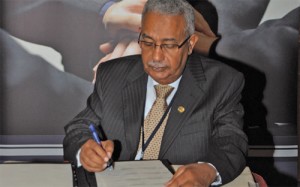
ICIEC also has robust business with companies in Egypt, Malaysia and Sudan, a country he knows well and of which he is a citizen. ICIEC, he confirms, has been receiving a number of requests to cover bank risk (Letters of Credits – LCs) in the past year. These LCs are related to imports of sugar, packaging materials, pharmaceutical products and livestock. ICIEC also covers some buyers on an open-account basis in Sudan and, generally, has a positive payment experience with them.
ICIEC has also provided PRI policies for investments in the telecom and the agriculture sectors in Sudan. The electricity sector has witnessed significant growth in the past few years. ICIEC has been involved in the sector by providing non-payment risk cover for major projects in Sudan, where exports were sourced from ICIEC member countries. Politics apart, Sudan has proven to be a good risk for ICIEC underwriting. Dr Taha confirmed that “although we have encountered minor delays in certain cases, ICIEC has not registered any claims for Sudan business to date”.
In terms of new products, the corporation seems to be always ahead of the learning curve. It, in fact, launched a pioneering “Non-honoring of Sovereign Financial Obligations (NHSFO) Insurance” in 2010 – well before the onset of the Arab Spring protests and the eurozone sovereign debt crisis. The NHSFO protects investors and financiers against the risk of the sovereign host country not complying with the demand to pay under an unconditional and irrevocable financial guarantee. According to ICIEC, the corporation started with issuing two policies – one direct insurance and one reinsurance – and is now processing on several policy applications, which will be issued in due course.
ICIEC has also recently launched a new product – Contract Frustration Policy – which is an enhancement of its Specific Transaction Policy with the inclusion of a new cover, Contract Frustration. “In July 2011,” explains Dr Taha, “ICIEC introduced the new version of its Specific Transaction Policy adding the contract frustration cover. This brings ICIEC product offering in line with practices in the international ECI and PRI industry. The main purpose of this development is to help satisfy contractors’ needs to insure both non-payment risk and pre-shipment risk related to cross-border projects they undertake. The transaction limit of the policy is currently around US$41m. However, given ICIEC’s strong relationship with its reinsurers, projects with bigger values can also be considered.”
Last year, ICIEC covered two projects, under the new arrangements. The first project involves the supply and installation of telecommunication equipments the second is related to the construction of a water desalination plant.
Dr Taha is ambivalent about the impact of the Arab Spring on ICIEC’s business emphasising that this impact is different in various countries. He believes that some countries are likely to recover quickly while it will take a long time for others, with some falling in between.
“In light of the generally worsening political climate, these countries suffered economically because of falling exports and reduction in foreign direct investment. Consequently, this has affected significantly our business volume in these countries. However, the corporation paid no claims in these countries during 2011, and we hope this will remain the same for 2012. Moreover, it is believed that there will be more opportunities in that part of the world in the future when relative stability is restored,” he adds.
The Islamic finance market is awaiting expectantly for the introduction of a Sukuk Guarantee Fund, where an independent third party would give guarantees and credit enhancement to Sukuk issuances. ICIEC has come up with the idea of establishing this fund, but is it still on the cards in today’s challenging business climate?
As the multilateral ECA of OIC member countries, explains Dr Taha, ICIEC is mandated to provide useful services to exporters, investors and financial institutions. ICIEC is always trying to respond to market requirements, by introducing new products and introducing flexibilities to its services. In this regard, and due to multiple inquiries received from the market, ICIEC is currently developing a Sukuk Takaful product that will provide a Sharia compatible instrument to mitigate the risk of loss incurred by the Sukuk holders.
“This new product is meant to be the appropriate alternative to all other questionable mitigation tools that couldn’t gain a consensus either from Sukuk holders, nor from Sharia scholars and specialists. We hope to be able to introduce this product during the second half of 2012 after obtaining Sharia clearance and board of directors’ approval. To start with, ICIEC depends on its own resources in addition to reinsurance support. The idea of a Sukuk Guarantee Fund will be deferred to a future date,” he confirms.
IDB president Dr Ahmed Mohamed Ali reiterates that “if we can find reinsurance for this product (the Sukuk Guarantee Fund), this will encourage ICIEC to do this. I hope they can do this.”
ICIEC has in the past co-underwritten Shariah-compliant ECI and PRI with MIGA, and co-operates with Berne Union members, including MIGA, in this area. At the same time, ICIEC plays an important role in the AMAN Union, the Union of ECAS in Arab and OIC Member Countries, of which ICIEC is a founder member. Has this co-operation led to a greater understanding and potentially an increased uptake of of Shariah-compliant ECI and PRI?
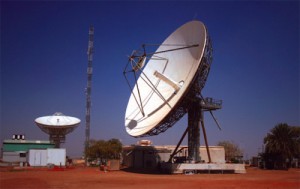
According to ICIEC,there is no specific framework for co-operating with Berne Union members on Shariah-compliant ECI and PRI. However, ICIEC leads discussions on the subject in the various forums of the Union.
“I made, for instance, a comprehensive presentation on Islamic ECI and PRI a couple of years ago, when I was requested to do so by the union management and the subject attracted a tremendous interest among the membership.
“Since joining the Berne Union, we have co-operated with a number of its members such as Atradius and Sovereign either as reinsurers or insured. In the Aman Union, we also had discussions on Shariah-compliant ECI and PRI and the members have shown a keen interest in learning from ICIEC’s experience in the area as well as the mechanics of structuring transactions, devising products and operationalising the concept into a viable business model.
“As most of the ECAs in the union belong to member countries, ICIEC has been helping through providing technical and reinsurance support,” emphasises Dr Taha.
As for the future, ICIEC is following a clear strategy, which is in line with the Strategy of the Islamic Development Bank. Dr Taha is confident that with the increase in capital, the corporation will be able to do more. “This includes providing insurance cover against country risks to encourage the inflow of foreign direct investments into our member countries; providing risk insurance support to banks to enable them to finance exports to the least developed member countries and do more project finance; and providing reinsurance support to export credit agencies in member countries.” n
ICIEC backs Istanbul metro project
In 2011, ICIEC signed a contract of reinsurance with MIGA, a member of the World Bank Group, for the Kadikoy-Kartal-Kaynarca Metro Project in Istanbul, of which MIGA is the primary insurer. The total financing requirement for the project – which was provided by a consortium of banks led by West LB of Germany and which is the subject of this contract of reinsurance – is €222.6m.
MIGA is providing insurance cover against the risk of Non – Honoring of Sovereign Financial Obligations (NHSFO) by the Municipality of Istanbul to cover the banks’ financing for a period of 9.5 years. In turn, ICIEC is providing €15m reinsurance support to MIGA.
The Kadikoy-Kartal-Kaynarca Metro Project will become the first underground metro line on the Asian side of Istanbul. Phase I of the project comprises the construction of a 22km underground metro line, which will serve the main districts from Kadikoy to Kartal with 16 metro stations. Phase II works will consist of tunneling to extend the metro line by 4.5km from Kartal to Kaynarca, the construction of a parking and maintenance area and the construction of pedestrian underpasses.
The project, being executed by a consortium of companies consisting of Astaldi of Italy and Makyol and Gulermak of Turkey, is in line with the IDB Group member country partnership strategy for Turkey in supporting infrastructure development in the country. The project will help improve urban mobility and reduce congestion and dependence on roads. It also marks ICIEC’s first investment operation in Turkey.
Support for new Saudi exports
ICIEC in 2011 signed a Comprehensive Short-Term Policy (CSTP) with Petro Rabigh, a leading petrochemical company based in Saudi Arabia. Under this, ICIEC will cover Petro Rabigh’s exports to more than 37 countries.
The policy involves ICIEC covering the whole turnover of Petro Rabigh. The exporter provides open account credit to its buyers, and ICIEC’s involvement insulates Petro Rabigh against the non-payment of its buyers, due to commercial or political reasons.
The partnership will allow Petro Rabigh to explore new markets in North Africa, Europe, and the Far East, simultaneously ensuring its balance sheet is protected against shocks by isolating the risk of non-payment. The presence of credit insurance will allow the company to offer competitive credit terms to its buyers, thereby directly enhancing its competitiveness in new markets.
On the other hand, ICIEC has access to specialised databases that provide detailed information on the payment history and creditworthiness of millions of companies. It also allows it to advise Petro Rabigh on credit management and enhancement, wherever required.
 Cash And Trade Magazine For Cash and Trade professionals in the Middle East
Cash And Trade Magazine For Cash and Trade professionals in the Middle East


